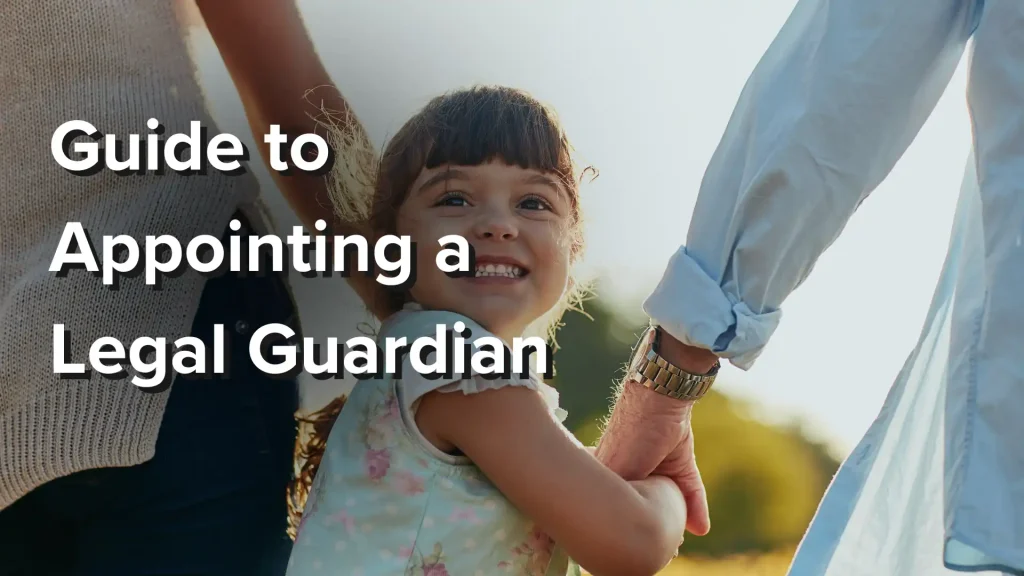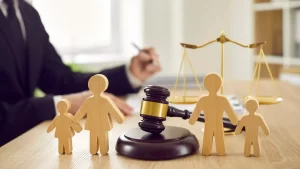
What should you know on how to appoint legal guardian in Raleigh? Because children lack the legal capacity to manage their affairs, they need a responsible adult to protect their health, welfare, and rights. Although a child’s parents typically fulfill this role, a child may not have parents willing or able to exercise their parental duties. The court can appoint someone as a child’s legal guardian in these situations.
What Is a Legal Guardian?
In North Carolina, a legal guardian for a child is a responsible adult who protects the child’s legal interests and welfare. A court can appoint a guardian of the estate for a child when a child receives property, such as personal injury compensation, life insurance proceeds, or an inheritance. A child may need a guardian of the estate if their parent(s) or the guardian of their person cannot responsibly manage the child’s property. Courts can also appoint someone to serve as a guardian of the person (responsible for managing a child’s well-being) or a general guardian for a child with deceased parents, surrendered their parental rights, or had their parental rights terminated by a court.
How Long Does Legal Guardianship Last?
A legal guardianship for a child will last until the occurrence of one of the following events:
- The child turns 18 and reaches the age of majority
- The child becomes emancipated by getting married or through a court order
- The child gets adopted and obtains a new legal parent
Courts can remove and replace a child’s legal guardian if the guardian engages in misconduct, such as making bad decisions on behalf of the child, mismanaging the child’s assets, or getting arrested/incarcerated for a crime. Courts may replace a legal guardian who no longer meets the qualifications to serve, such as when a court adjudicates the guardian legally incompetent. Finally, a court may terminate legal guardianship when the child’s parent(s) can resume exercising their parental duties. A legal guardian may also resign their position.
Can a Guardian Sign Legal Documents?
In many cases, a guardian has the authority to sign legal documents on behalf of a child. However, the scope of this authority will depend on the type of guardianship established by the court. For example, a guardian of the estate can only manage a child’s financial affairs and thus may have the authority to sign legal documents related to financial affairs, such as setting up bank accounts or hiring financial advisors. A guardian of the person can only manage affairs relating to a child’s well-being and may have the authority to sign legal documents necessary to protect the child’s well-being, such as documents related to medical treatment. A general guardian steps into the shoes of the child’s parent(s) and can sign legal documents on behalf of the child as the child’s parents normally would.
How Old Does a Legal Guardian Have to Be?
A legal guardian for a child should be at least 18 years old and have the legal capacity to make decisions on behalf of the child. Courts may appoint family members to serve as legal guardians for children whose parents cannot fulfill their responsibilities; in some cases, an older sibling may be appointed by the court if they have reached the age of majority to serve as a legal guardian for their younger sibling.
What Rights Do Legal Guardians Have?
 Legal guardians have the right to make decisions and take actions within the scope of their authority over a child’s affairs. For example, a guardian of the estate can decide on a child’s property or financial affairs. In contrast, a general guardian can control all affairs, including the right to decide where the child will live, where the child will go to school, and what healthcare the child will receive.
Legal guardians have the right to make decisions and take actions within the scope of their authority over a child’s affairs. For example, a guardian of the estate can decide on a child’s property or financial affairs. In contrast, a general guardian can control all affairs, including the right to decide where the child will live, where the child will go to school, and what healthcare the child will receive.
However, legal guardians must exercise their authority according to their fiduciary duties to the child. A guardian owes a duty of trust to the child and must make decisions or act to further the child’s interests. For example, a guardian cannot use a child’s money or assets for the guardian’s benefit or purposes.
Contact a Family Law Attorney Today
When you have a child in your family who needs someone to assume responsibility for the child’s interests and welfare, including when the child’s parents pass away or their parents cannot or will not exercise parenting duties, legal guardianship can help protect the child’s rights and safety. Our Raleigh family law attorneys can help you achieve legal guardianship alongside our successful list of clients. Call Marshall & Taylor PLLC at (919) 833-1040 or contact us online today for a confidential consultation with our legal team to learn more about legal guardianship in North Carolina.
Related Posts:
Become a Foster Parent Requirements
Can My Child Choose Which Parent They Want to Live with in NC?
